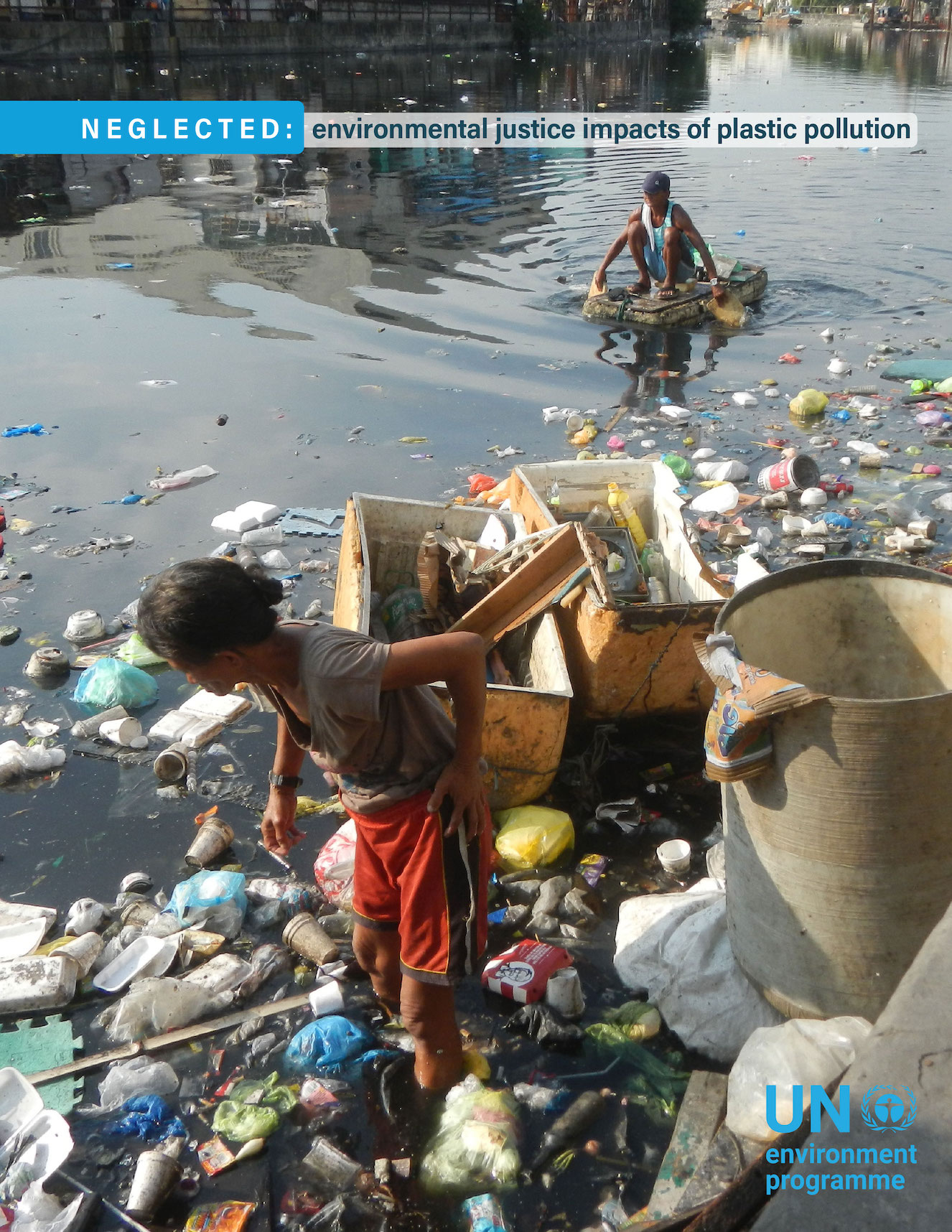REPORT: Environmental Justice Impacts of Marine Litter and Plastic Pollution

The United Nations Environment Programme (UNEP) and the non-governmental organisation Azul have released a new report highlighting how plastic pollution disproportionately affects marginalised communities and communities living in close proximity to plastic production and waste sites.
The report, NEGLECTED: Environmental Justice Impacts of Marine Litter and Plastic Pollution, calls for the recognition of these communities and their inclusion in local decision making. The impacts of plastics on marginalized populations are severe, and exist at all stages of the production cycle, from extracting raw materials and manufacturing, through to consumption and disposal.
The report showcases how environmental injustices are linked to plastic production, in areas such as deforestation for road building, the displacement of indigenous peoples to conduct oil drilling, as well as contamination of potable water by fracking operations to extract natural gas, in countries such as the United States and Sudan.
Moreover, the report warns of health problems among African-American communities living near oil refineries in the Gulf of Mexico, and the occupational risks faced by some two million waste pickers in India.
“Environmental justice means educating those on the frontlines of plastic pollution about its risks, including them in decisions about its production, use, and disposal, and ensuring their access to a credible judicial system,” said UNEP Executive Director, Inger Andersen.
Plastic waste not only endangers the livelihoods of those relying on marine resources, it also causes a raft of health issues for people who consume seafood infested with toxic micro and nano plastics.
Women, in particular, suffer from plastic-related toxicity risk, due to higher aggregate exposure to plastics at home and even in feminine care products.
Differences in gender, social roles, and political power in regulating plastic use and health standards place women at high risk of miscarriages and cancer, further exacerbating gender-related disparities overall.
Aggravated by the COVID-19 pandemic, plastic waste has become a major part of the global pollution crisis, along with biodiversity loss and climate change, representing a triple emergency that must be tackled by strong and effective action plans. There is great concern that the pandemic may reverse any progress on reducing consumption of single-use plastic.
Finally, this report calls for governments to prioritize the needs of those disproportionately affected by plastic pollution and take action at multiple levels. Authors recommend governments to adopt regulatory and legislative solutions to eliminate unnecessary packaging and single-use plastics, as well as inform on the consequences of plastic consumption.
Other actors such as business and industry leaders, non-governmental actors, and consumers are also asked to make efforts to reverse the situations for those who are marginalized.


